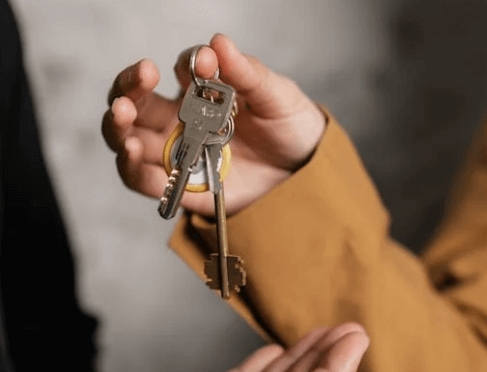What are landlord responsibilities in Florida? In Florida, landlord responsibilities include adhering to building codes, making necessary repairs to ensure properties are habitable, and maintaining common areas in a safe and clean condition. Navigating the rental market in Florida can often feel like uncharted territory for renters and landlords. Understanding the specific Landlord Responsibilities in Florida is crucial to smooth sailing in this market.
This introductory guide sheds light on these responsibilities, offering clarity and peace of mind to all parties involved. By carefully delineating the Landlord Responsibilities in Florida, this blog seeks to provide an invaluable resource, Empowering landlords and tenants to cultivate positive, legally compliant rental partnerships.
In navigating the complex terrain of the Florida rental market, seasoned real estate investors Steve Daria and Joleigh have highlighted the importance of understanding landlord responsibilities. Their insights are crucial to our comprehensive guide, offering valuable perspectives on fostering legally compliant and positive rental relationships.
Understanding Landlord Responsibilities in Florida
For many, becoming a landlord in Florida is an attractive investment opportunity.
However, it comes with a roster of responsibilities that are essential to the success and legality of your rental property venture.
Understanding and adhering to these landlord responsibilities is about more than just legal requirements; it’s about providing tenants with a safe, secure, and satisfying living environment.

The Legal Framework of Landlord Duties
Navigating the intricate legal terrain that outlines landlord duties in Florida is essential for both property owners and tenants.
This section demystifies the statutory obligations and rights governing the Sunshine State’s landlord-tenant relationship.
Health and Safety Regulations
A landlord’s primary job is to ensure that their property meets all health and safety codes specified by local Florida laws.
This includes maintaining structural integrity, ensuring that electrical, plumbing, and HVAC systems work, and providing a habitable environment free from pests and hazards.
Security Measures
Landlords are also tasked with reasonably ensuring their tenants’ security.
This encompasses installing and maintaining locks, security systems, and adequate lighting in common areas to deter criminal activity and ensure tenant safety.
Privacy Rights
Respecting tenant privacy is a legal and ethical obligation for every landlord.
Except for emergencies or when repairs or inspections are necessary, landlords must provide notice before entering a tenant’s living space, typically at least 24 hours in advance.
Get An Offer Today, Sell In A Matter Of Days
Financial and Administrative Responsibilities
In Florida, landlords bear specific financial and administrative obligations critical to maintaining a lawful and functional rental agreement.
This section explores the spectrum of these duties, from security deposit handling to the accurate reporting of rental income.
Collection and Management of Rents
Efficient rent collection procedures are crucial for upholding cash flow and securing the profitability of your rental property.
Establishing and communicating clear policies for rent payments, late fees, and grace periods is essential.
Record Keeping and Documentation
Maintaining accurate records is not just a best practice; it’s a legal requirement.
This documentation includes lease agreements, records of all payments and expenses, records of repairs and maintenance activities, and any communication with tenants.
Compliance with Fair Housing Laws
Florida landlords must adhere to federal and state Fair Housing Acts, which do not allow discrimination based on national origin, religion, sex, familial status, race, color, or disability.
Comprehending these laws can help prevent legal issues and promote a fair and equitable housing market.
Maintaining the Property
In Florida, landlords are legally required to ensure their properties meet health, safety, and building codes.
This involves regular maintenance and prompt repairs to provide a habitable living environment for tenants.
Regular Inspections and Repairs
Regular inspections of the property help identify and address maintenance issues before they become a common problem.
Timely repairs not only keep tenants happy but also preserve the value of your property.

Upgrades and Improvements
Investing in upgrades and improvements can enhance your property’s attractiveness, allowing you to justify higher rents while keeping your property competitive in the Florida rental market.
Building a Healthy Landlord-Tenant Relationship
A healthy landlord-tenant relationship is foundational to the success of any rental agreement, particularly in Florida.
This section highlights ways landlords can foster positive interactions and mutual respect with their tenants, ensuring a smooth and beneficial partnership for both parties.
Communication is Key
Open and transparent communication is the foundation of a good relationship with your tenants.
Responding to tenant concerns, questions, and feedback can help foster a positive living environment and reduce tenant turnover.
Know Your Tenants’ Rights
Understanding and respecting tenant rights is crucial for fostering trust and compliance.
This includes adhering to the lease terms, respecting their privacy, and following proper procedures for rent increases, evictions, and other legal actions.
Strategies for Success
Landlords must adopt strategic approaches to ensure a prosperous and legally compliant rental experience in Florida.
This section offers valuable insights and tactics that promote the fulfillment of legal obligations while enhancing the landlord-tenant relationship.
Leverage Technology
Property management software can streamline many administrative tasks associated with being a landlord, from collecting rent online to tracking maintenance requests and expenses.
Build a Reliable Team
Having a network of trusted professionals, such as a reputable property manager, a skilled maintenance team, and a knowledgeable attorney, can alleviate many of the burdens of property management.
Stay Informed
The legal and regulatory environment is repeatedly changing.
Staying informed about Florida’s latest landlord responsibilities and real estate laws is crucial for compliance and success.
Frequently Asked Questions about Landlord Responsibilities in Florida
Below, we address some of the most frequently asked questions about landlord responsibilities in Florida to clarify further what property owners need to know and do.
How much can I legally charge for a security deposit in Florida?
Florida does not impose a statutory limit on security deposits, but landlords must follow specific rules regarding the holding and return of such deposits.
Can I enter my tenant’s property without permission?
Landlords are required to provide a minimum of 24 hours notice prior to entering a rented property unless it is an emergency.
What happens if I don’t meet my landlord’s responsibilities?
Failing to meet landlord responsibilities can have serious consequences, extending beyond legal penalties to potential financial losses and damage to reputation.
In Florida, landlords are legally obligated to uphold specific standards and duties to ensure their tenants’ safety, health, and rights.
Failure to abide by these responsibilities can lead to legal action by tenants and regulatory authorities, resulting in fines, penalties, and legal fees.
Conclusion
Being a landlord in Florida comes with a wide range of responsibilities that, when managed effectively, can lead to a rewarding and profitable attempt. By understanding your obligations, leveraging available resources, and maintaining open lines of communication with your tenants, you can fruitfully manage your rental property and contribute positively to the Florida real estate market. Remember, your role as a landlord is not just about financial returns; it’s about providing tenants with a safe, secure, and welcoming home.
**NOTICE: Please note that the content presented in this post is intended solely for informational and educational purposes. It should not be construed as legal or financial advice or relied upon as a replacement for consultation with a qualified attorney or CPA. For specific guidance on legal or financial matters, readers are encouraged to seek professional assistance from an attorney, CPA, or other appropriate professional regarding the subject matter.

